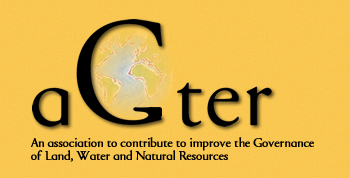|
|
||||||||||||||
|
|
The agrarian question in Ukraine: current issues and recent dynamicsThis thematic meeting was held on Tuesday, November 30. It was presented by Hubert Cochet, professor at Agroparistech, Robert Levesque, Director of Terres d’Europe-Scafr, Clio Randimbivololona, Clément Jaubertie and Lenaïc Pardon, all three having realized studies on land management in Ukraine as part of their classes in Agroparistech. The interventions were articulated around the following points: 1. Duality of Ukrainian agriculture: micro-farming and agribusiness 2. Economic and social performance of different models of agriculture, future perspectives 3. The revitalization of agriculture through land reform [(Ukrainian agriculture has a very strong dual character, partly inherited from the Soviet era but now reinforced by certain aspects: on one side, the vast holdings of several thousand hectares of crops that rent a large number of plots to beneficiaries of the 90’s agrarian reform and on the other side, a multitude of micro-holdings (4 to 5 million across the country) with a plot of less than one hectare. A small number of intermediate-sized farms have sprung up since the de-collectivization but they struggle to occupy a significant place in the rural areas. From a detailed study of the recent dynamics, both on land management and on production process, conducted in 2009 and 2010 in several regions of the country, speakers question the future of this dual agriculture, based on the comparison of economic and social performance of the different types of agriculture. They show in particular how a revamped land policy, especially through the regulation of access to land, could turn small farms into a more dynamic economic sector.)] You can watch the video of the meeting below:
This conference was made possible thanks to a financial contribution of MAAPRAT within the "Association Développement Durable et Mondialisation du Jardin Tropical de Paris". |
AGTER. Addres: 45 bis, avenue de la Belle Gabrielle, 94736 NOGENT SUR MARNE CEDEX, FRANCE
Telephone: +33(0)1 43 94 72 59 / +33(0)1 43 94 72 96
E-mail: agter@agter.org




